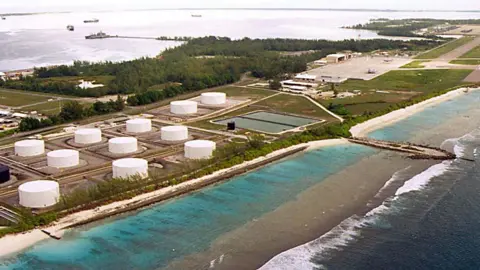In a landmark development, the United Kingdom is poised to sign a significant agreement with Mauritius aimed at resolving long-standing disputes over the Chagos Archipelago. This move marks a pivotal step toward addressing one of the most contentious territorial issues in the Indian Ocean, with implications for international law, decolonization efforts, and regional stability.
Background of the Chagos Dispute
The Chagos Archipelago, a group of over 50 coral islands in the Indian Ocean, has been a source of tension between the UK and Mauritius for decades. Mauritius claims that the islands were detached from its territory during its colonial period in a manner inconsistent with international law, particularly the principles of decolonization enshrined in the United Nations Charter.
In 1965, prior to gaining independence in 1968, the UK separated the Chagos Islands from Mauritius, establishing the British Indian Ocean Territory (BIOT). The most notable island, Diego Garcia, was leased to the United States for a military base, which remains a strategic military asset for both nations.
International Legal Pressure and Mauritius’ Claims
Mauritius has consistently argued that the separation was unlawful, asserting that it deprived the island nation of its sovereign territory. The legal battle escalated when Mauritius took the case to the International Court of Justice (ICJ) in 2019. The ICJ issued an advisory opinion affirming that the UK’s detachment of the Chagos Islands was unlawful and called for the UK’s decolonization obligations to be fulfilled, including the eventual return of the islands to Mauritius.
Furthermore, the UN General Assembly adopted a resolution in May 2019, demanding the UK withdraw from the archipelago within six months. The UK, however, maintains that the islands are a British Overseas Territory and that the legal and strategic considerations justify its continued administration.
Key Elements of the Proposed Deal
The upcoming agreement is expected to include several critical components:
- Sovereignty and Return of Islands: While the UK may retain some strategic rights, particularly concerning Diego Garcia, the deal is anticipated to recognize Mauritius’s sovereignty over the archipelago, aligning with the ICJ’s advisory opinion and UN resolutions.
- Compensation and Development: The deal could involve financial compensation or development aid aimed at improving the livelihoods of the Chagossian people—those forcibly removed in the 1960s and 1970s—many of whom still seek the right to return.
- Protection of Strategic Interests: The UK and the US will likely negotiate clauses safeguarding military and strategic interests, especially concerning Diego Garcia, which hosts a vital US military base.
- Environmental and Cultural Preservation: Provisions are expected to address the ecological significance of the islands and the cultural heritage of the displaced Chagossians.
Implications of the Agreement
This deal signals a potential resolution to a complex colonial legacy, emphasizing the importance of adhering to international legal standards. It also demonstrates the UK’s willingness to engage constructively with Mauritius, setting a precedent for resolving similar disputes through diplomacy and legal channels.
For Mauritius, regaining sovereignty over the Chagos Islands is a matter of national pride and justice, rectifying historical wrongs committed during the colonial era. For the UK, the agreement offers an opportunity to demonstrate commitment to international law and decolonization principles, potentially easing diplomatic tensions.
The Road Ahead
While the specifics of the deal remain under negotiation, the consensus indicates a move toward a mutually acceptable resolution. The involvement of international courts and the UN underscores the global importance of the dispute and the need for adherence to international legal standards.
In conclusion, the impending UK-Mauritius deal over the Chagos Archipelago could mark a turning point in decolonization and territorial disputes, highlighting the power of diplomacy, legal rulings, and international cooperation in resolving long-standing conflicts. As negotiations progress, the world watches with interest, hopeful for a fair and just resolution that respects sovereignty, addresses historical grievances, and promotes regional stability.
Email Us on editorial@nnafrica.com













